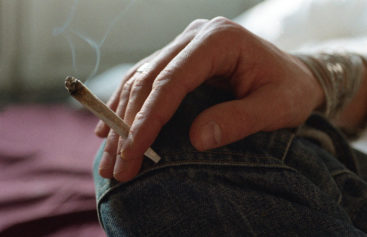Beginning next month, possession of marijuana will no longer be a criminal offense in New York City. Mayor Michael Bloomberg announced the change in policy during his State of the City address Thursday, a change that New York Governor Andrew Cuomo has pushed for at the state level. Individuals found carrying small amounts of marijuana will now be given tickets rather than misdemeanor drug charges, provided they have proper identification and no outstanding warrants. Bloomberg believes that the change will prevent citizens from earning a criminal record from the minor offense, but he is still against legalization of the drug.
“I’m opposed to legalizing marijuana, because all that will happen is: No. 1, it’s much more potent than when you and I were teenagers or whatever; And No. 2, the drug dealers are going to sell something,” he said during his radio show Friday. “If there’s no money in marijuana, they’re going to sell harder stuff.”
The city’s taxpayers will also see the benefit of decreased penalties for possession, with reduced enforcement costs across the board. The Drug Police Alliance reported that New York spent between $75 and $100 million dollars on processing misdemeanor marijuana offenses last year. Additionally, young black and Latino men have been the target of the marijuana enforcement, leaving thousands saddled with a criminal record for minor offenses.
“This new policy is a good step in the right direction – and it’s the direct result of the ongoing campaign led by community groups in New York to end these racially biased, unpopular, unjust and expensive arrests,” New York’s DPA director, Gabriel Sayegh, said in a statement. “Marijuana possession is the number one arrest in New York City and with this new policy change, tens of thousands of people, mostly young men of color, will no longer be held in jail overnight on for possessing small amounts of marijuana.”
New York is one of several regions to embrace the decriminalization of marijuana, with Colorado and Washington taking the additional step of legalizing the federally banned substance. A poll conducted by the Paul Simon Public Policy Institute showed that 63 percent of Illinois residents supported the legalization of medicinal marijuana, another growing movement.


